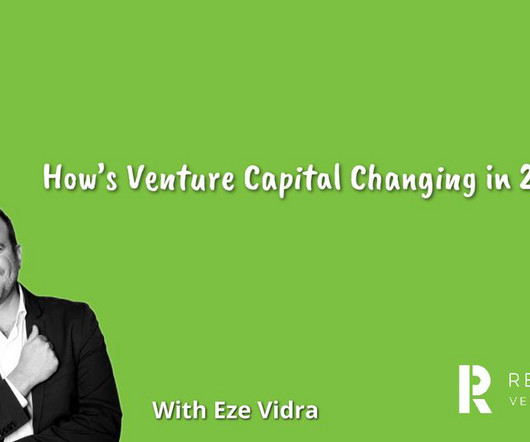How’s Venture Capital Changing in 2023
VC Cafe
FEBRUARY 27, 2023
For the past 10 years, with interest rates near zero, VC investors plowed record amounts into tech startups and enjoyed a seemingly ‘easy’ investing environment. Prices went up from round to round, and startups were encouraged to grow, grow, grow, and not to worry about profitability. Support emerging managers.












Let's personalize your content